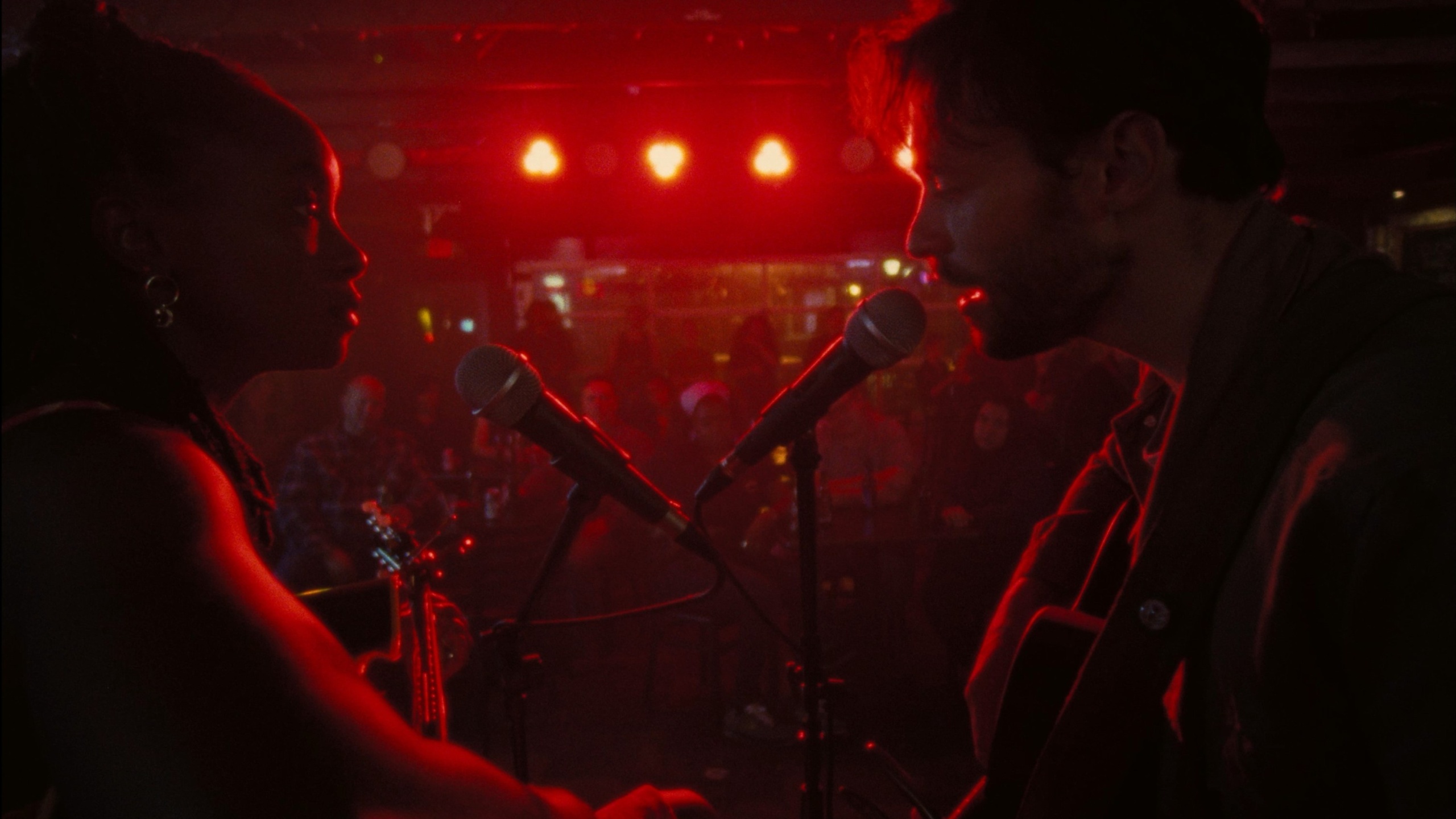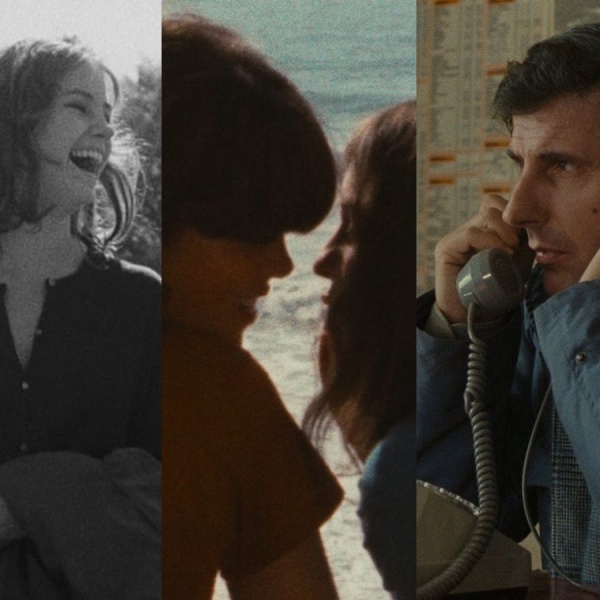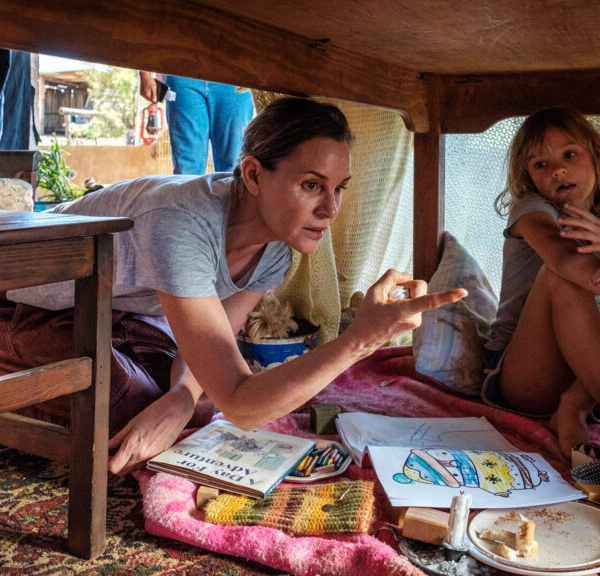Dandelion (KiKi Layne) is not appreciated in her own time. She’s not appreciated at the swanky Cincinnati hotel where she sings and plays guitar three nights a week, trying her damndest to be heard over rude guests who talk during her set, jabber on their phones, or simply pretend she doesn’t exist. She’s not appreciated at home, where her ailing mother Jean (Melanie Nicholls-King) can barely be coaxed off the couch without tossing off a combative word at her daughter. And she’s not appreciated the way the same people she came up with on the local music scene are, so many of them crowding her social media feeds as they sign big deals and frequently flash their bodies for some added clout.
So when Dandelion (not her real name, but as real as anything) takes off in the middle of the night, bound for the last place she expects to find anything of value for a Black female singer-songwriter — a South Dakota biker rally with a musical component — we know how very little she has left to risk. We don’t even really know how much she might gain. In Nicole Riegel’s passionate “Dandelion,” the journey that Dandelion embarks on is far more focused on who she might become along the way.
Riegel, whose feature debut “Holler” offered a similarly affecting and wisely told slice of life story about one young woman’s passage through a changing America, continues to craft leading ladies who are enthralling to watch without succumbing to movie-ready machinations. Dandelion’s trip to South Dakota might bring with it some predictable plot points — she meets a handsome man, she finds a group of like-minded people, she rediscovers her voice — but Riegel is the last filmmaker eager to offer up bland happily-ever-afters. And while she’d never say something as corny as “it’s not the destination, it’s the journey,” that’s the sort of space she’s continuing to work inside.

While “Holler” mostly took place inside of fading urban locales, “Dandelion” spreads out, as our star hits the road and finds enough gorgeous country to inspire anyone. But the revved-up environment of the bike show doesn’t suit her, and as she wanders around town with only a guitar to her name, it’s difficult to imagine what she will find for herself here. And yet…
Across town, another talented stranger (Thomas Doherty) is also making his way through the crowd, guitar in tow, a general air of unease around him. By way of this elegant framing, Riegel sets Dandelion and Doherty’s Casey up as two sides of the same coin, a concept her script will pull into surprising directions throughout its somewhat meandering running time.
Like Dandelion, Casey is a talented singer and songwriter whose life hasn’t turned out the way he hoped, and while he’s back in South Dakota to meet up with his old band (played by real-life group Brother Elsey), he has little expectation this gig will bring him back into the full fold. He walked away from his dream once — now he works “in sales,” an admission that makes everyone, especially Casey, wince — and so, when he meets Dandelion, he sees keenly where she might end up one day, too. He doesn’t want that for her, but eventually, he has to consider what Dandelion herself wants.
As Dandelion and Casey come together — first as admirers of each other’s craft, then friends, then something far deeper — they spark something profound in each other. Riegel delights in extended sequences of the pair making music together, a few chords here and there, before they’re performing for crowds while still feeling like the only people in the room. While “Dandelion” plays out over a few short days, the duo pack plenty into those spare hours, as their passion bleeds into the music and then back out again.

At its best, the film feels like an American counterpart of John Carney’s iconic “Once,” not just when it comes to two people falling in love with both music and each other, but the ways in which those things become wholly interchangeable. During one of Casey’s most stirring musical performances, cinematographer Lauren Guiteras’ camera gets so close to his face, his mouth, his throat, that we feel as close to Casey as Dandelion must. But as Casey sings out and Guiteras cuts to Dandelion, apart from the crowd and watching Casey just as we are, we’re suddenly forced to consider how witnessing someone perform something they love can open a new window into how we love them. And, as we slowly learn, how much it might reveal the vast chasm of we don’t know about them.
The National brothers and bandmates and producers Bryce Dessner and Aaron Dessner provide the film’s music (Layne does all her own signing and is also a credited executive producer), ensuring the quality of music remains high throughout. And it does: just like Layne’s performance, which is as rich and rewarding as anything she’s done yet (including her lauded performance in “If Beale Street Could Talk”). As Riegel builds to a conclusion that feels both predictable and satisfying, Dandelion must decide how far she’s willing to go to bet on herself. More people should bet on Riegel and Layne, and fast.
Grade: B
IFC Films will release “Dandelion” in theaters on Friday, July 12.






